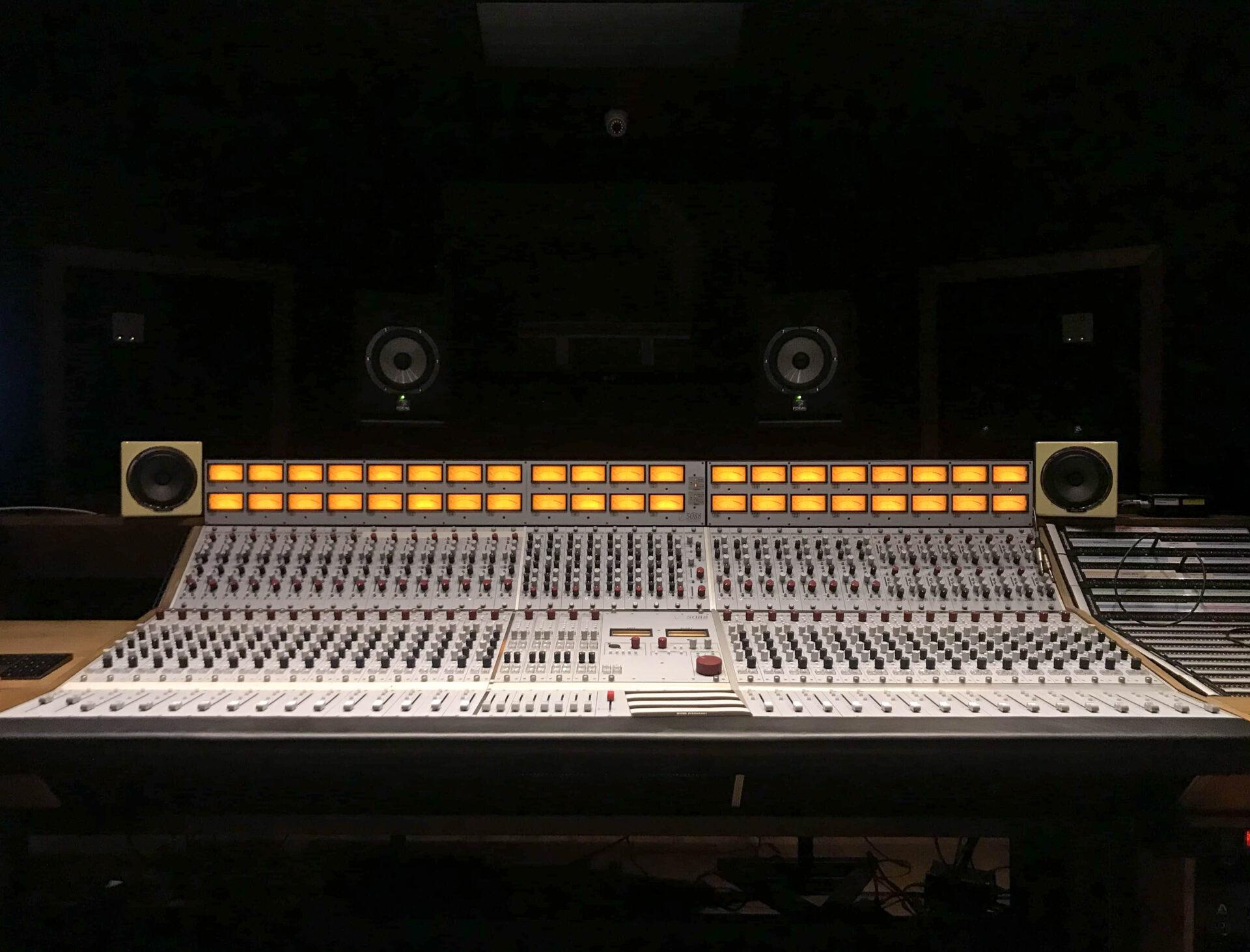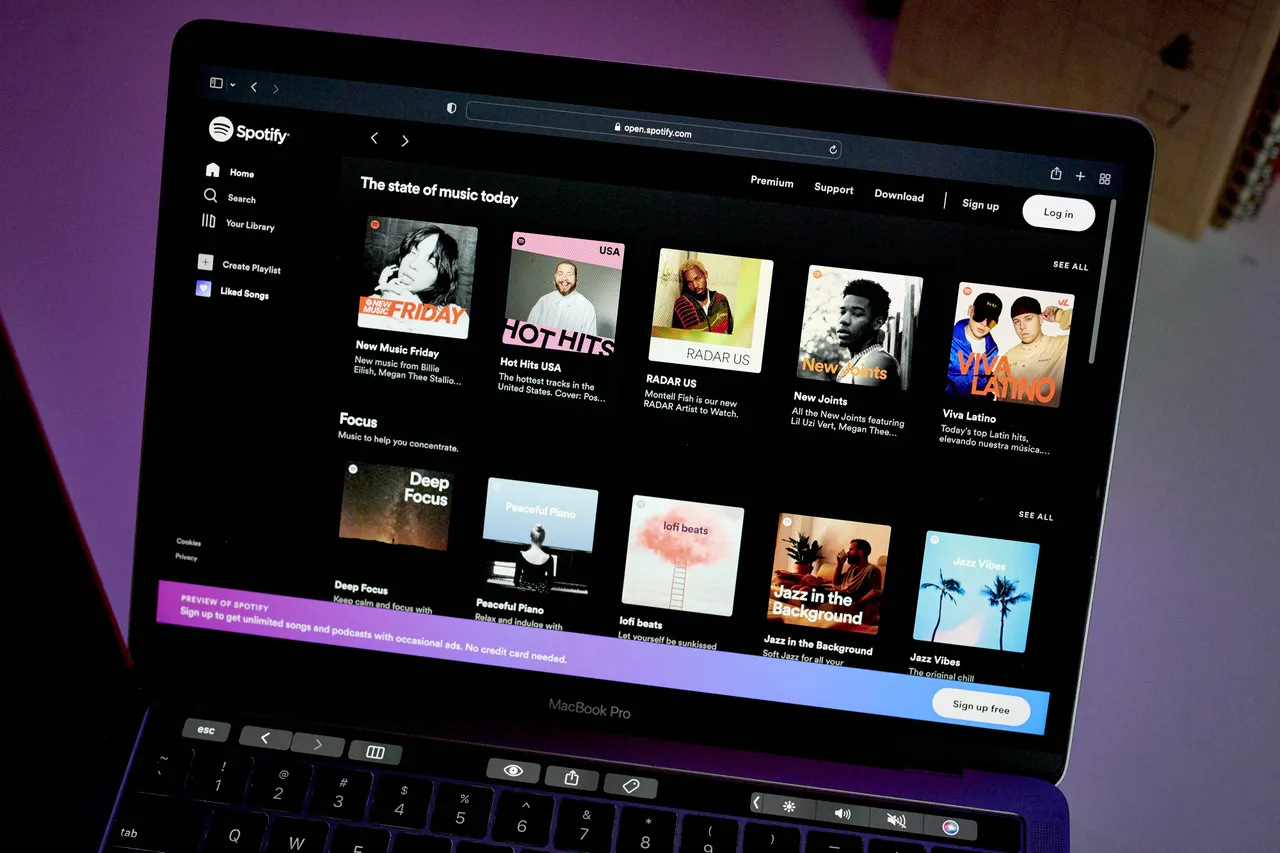

Rock
Do I Need To Know How To Mix Rock Music
Published: November 2, 2023
Discover if knowing how to mix rock music is necessary to succeed in the industry. Understand the importance of rock mixing and its impact on the final sound.
(Many of the links in this article redirect to a specific reviewed product. Your purchase of these products through affiliate links helps to generate commission for AudioLover.com, at no extra cost. Learn more)
Table of Contents
Introduction
Rock music is a genre that has captivated audiences for decades with its energy, power, and raw emotion. From the groundbreaking sounds of Elvis Presley and Chuck Berry to the iconic hits of Led Zeppelin and Guns N’ Roses, rock music continues to be a cultural phenomenon that resonates with millions of people worldwide.
While many music enthusiasts enjoy the thrill of listening to rock music, there is a subset of individuals who are passionate about taking their involvement to the next level. These are the aspiring musicians, producers, and engineers who not only want to appreciate rock music but also want to create it themselves.
When it comes to producing rock music, one crucial aspect that often gets overlooked is the process of mixing. Mixing is the art of balancing and enhancing the different elements of a track, including the instruments, vocals, and effects, to create a polished and cohesive final product.
In this article, we will explore the importance of knowing how to mix rock music and the benefits it can bring to your musical journey.
What is Rock Music Mixing?
Rock music mixing is the process of combining and manipulating individual audio tracks to create a well-balanced and professional-sounding mix. It involves adjusting the levels, panning, EQ (equalization), and adding effects to each element of the song, including guitars, drums, vocals, bass, and other instruments. The goal of rock music mixing is to bring out the best qualities of each sound and create a cohesive and impactful listening experience.
When mixing rock music, it’s essential to have a deep understanding of the genre’s sonic characteristics and the desired emotional impact. Rock music is characterized by its powerful, dynamic, and energetic sound, with a focus on guitar-driven melodies, strong percussion, and emotive vocals. A good rock mix should capture the intensity and emotion of the performance while maintaining clarity, depth, and balance.
Rock music mixing involves various technical processes, such as adjusting levels to achieve a balanced mix, applying EQ to shape the frequency response of each instrument, using compression to control dynamics and add sustain, and adding reverbs and delays to create depth and ambiance. Each decision made during the mixing process contributes to the overall sonic identity and impact of the song.
Moreover, rock music mixing requires artistic sensibilities as well. It’s important to have an ear for what sounds good and how to enhance the emotional impact of the music. It involves making creative decisions in terms of panning, creating space in the mix, and utilizing effects like distortion and modulation to achieve a desired sonic character.
Overall, rock music mixing is a skill that takes time and practice to master. It requires a blend of technical knowledge, artistic intuition, and an understanding of the genre’s unique sonic landscape. By honing your mixing skills, you can elevate your rock music productions and bring your artistic vision to life.
The Importance of Mixing in Rock Music
Mixing is a critical step in the music production process, and it holds immense importance in the context of rock music. It is the stage where individual audio elements are combined to create a cohesive and impactful sonic experience. Here are some key reasons why mixing is crucial in rock music:
1. Enhancing Clarity and Balance:
Rock music is known for its powerful and energetic sound, with multiple instruments and elements competing for space in the mix. Effective mixing ensures that each instrument can be heard clearly and that the mix remains balanced, allowing the listener to appreciate every detail and nuance of the music.
2. Creating Emotional Impact:
Rock music is often driven by intense emotions, and a well-mixed track can enhance and amplify those emotions. Through the use of dynamics, EQ, and effects, a skilled mix engineer can shape the sonic landscape to evoke the intended mood and intensity, making the listening experience more engaging and impactful.
3. Highlighting Artistic Vision:
Every musician and band has a unique artistic vision for their music. Mixing helps bring that vision to life by emphasizing the desired sonic characteristics. Whether it’s a specific guitar tone, a powerful vocal presence, or a punchy drum sound, the mixing process acts as a tool to showcase the intended sonic identity of the artist.
4. Ensuring Compatibility across Different Listening Systems:
In today’s digital age, music is consumed on a variety of devices and platforms, ranging from high-quality speakers to mobile phones and headphones. A well-mixed track is tailored to sound good across different listening systems, ensuring that the intended impact and sonic qualities of the music are preserved, regardless of the medium used to listen to it.
5. Setting a Professional Standard:
In a competitive industry, having a professionally mixed track can make a significant difference. A polished and well-balanced mix sets a high standard for your music, making it more likely to stand out among the vast array of music available to listeners. It demonstrates a commitment to quality and can leave a lasting impression on both industry professionals and fans.
Overall, the importance of mixing in rock music cannot be understated. It is a crucial step that elevates the music from a raw recording to a polished and powerful final product. Investing time and effort into learning and mastering the art of mixing can greatly enhance the impact and success of your rock music creations.
Benefits of Knowing How to Mix Rock Music
Knowing how to mix rock music can bring a multitude of benefits to your musical journey. Whether you’re a musician, producer, or engineer, here are some key advantages of having mixing skills in the realm of rock music:
1. Creative Control:
By having the ability to mix your own rock music, you gain complete creative control over your sound. You can shape the tonality, dynamics, and overall vibe of the music to match your artistic vision. This level of control allows you to truly express yourself and bring your unique ideas to life without relying on someone else to interpret your vision.
2. Cost Savings:
Outsourcing the mixing process to a professional can be costly, especially if you’re working on a tight budget. Knowing how to mix rock music eliminates the need to hire someone else for this task, saving you money that can be invested in other aspects of your music career, such as promoting your music or upgrading your equipment.
3. Faster Turnaround Time:
When you possess the skills to mix rock music, you can take control of your own production timeline. You don’t have to wait for someone else to mix your tracks, which can sometimes introduce delays in the creative process. With the ability to mix on your own, you can work at your own pace, ensuring a faster turnaround time for your music releases.
4. Consistency in Sound:
Hiring different mix engineers for every project can sometimes result in inconsistencies in the overall sound of your music. When you know how to mix your own rock music, you can ensure a consistent sonic identity across all your tracks and albums. This consistency can contribute to establishing your unique sound and building a recognizable brand as an artist or band.
5. Collaboration and Communication:
If you’re part of a band or working with other musicians, having mixing skills can greatly enhance collaboration and communication. It allows you to effectively communicate your sonic preferences and ideas to your bandmates or collaborators, making the creative process smoother and ensuring that everyone is on the same page in terms of the desired sound.
By possessing the knowledge and skills to mix rock music, you gain a competitive edge in the industry. It allows you to have control over your creative output, save money, and streamline your music production process. Furthermore, it enhances collaboration and communication with others, providing a strong foundation for creating outstanding rock music that resonates with your audience.
Limitations of Not Knowing How to Mix Rock Music
Not knowing how to mix rock music can have several limitations and drawbacks for musicians and producers. Here are some key points to consider:
1. Dependence on Others:
Without the ability to mix your own rock music, you become reliant on others to complete the mixing process. This can introduce delays in your music production timeline and may require you to seek outside help, which can be costly. Additionally, depending on others can limit your creative control and result in interpretations of your music that may not align with your artistic vision.
2. Mismatched Sonic Identity:
Each musician or band has a unique sonic identity that reflects their artistic vision. Not knowing how to mix can result in a disconnect between the sound you envision and the final product. This lack of control can lead to a mix that doesn’t fully capture the energy, emotion, and impact you intend for your rock music, potentially diluting its effectiveness.
3. Inconsistent Quality:
Working with different mix engineers for each project can result in inconsistent quality across your releases. Each engineer may have their own approach and interpretation of your music, leading to varying levels of sound quality and cohesiveness. This inconsistency can make it harder to establish a recognizable and consistent sound as an artist or band.
4. Miscommunication and Frustration:
When you lack the knowledge to articulate your desired sound to a mix engineer, miscommunication and frustration can arise. It can be challenging to effectively communicate your sonic preferences, resulting in a mix that doesn’t align with your vision. This can lead to dissatisfaction and hinder the creative process.
5. Cost Considerations:
Hiring a professional mix engineer adds an additional cost to your music production. If you’re working on a limited budget, outsourcing the mixing process may not be a feasible option for every project. Not having the skills to mix your own rock music can restrict your ability to bring your musical ideas to life within your financial means.
Ultimately, not knowing how to mix rock music limits your creative control, introduces potential inconsistencies, and increases your dependence on others. It can hinder your ability to fully realize your artistic vision and result in a mismatch between your desired sound and the final product. Investing time and effort in learning how to mix can help overcome these limitations and empower you to have greater control and artistic expression in your rock music journey.
Factors to Consider Before Mixing Rock Music
Mixing rock music is a complex and nuanced process that requires careful consideration of various factors to achieve the desired sonic result. Here are some key factors to keep in mind before diving into the mixing stage:
1. Understanding the Genre:
Rock music encompasses a wide range of subgenres and styles, each with its unique sonic characteristics. Before mixing a rock track, it is crucial to have a solid understanding of the specific subgenre you’re working in. Whether it’s classic rock, alternative rock, or metal, familiarize yourself with the typical instrumentation, arrangement, and sonic palette associated with the genre. This understanding will inform your decisions during the mixing process.
2. Emphasizing the Song’s Essence:
Every rock song has its own essence, whether it’s a catchy riff, powerful vocals, or a grooving rhythm section. As a mix engineer, it’s important to identify and highlight the song’s essence and ensure it shines through in the mix. Pay attention to the emotional impact and the core elements that make the song memorable, and shape the mix to enhance these qualities.
3. Prioritizing Instrument Balance:
In rock music, the combination of guitars, drums, bass, and vocals is crucial. Achieving a well-balanced mix involves giving each instrument its appropriate space and ensuring they blend together harmoniously. Take time to carefully level each instrument, pan them appropriately in the stereo field, and apply EQ adjustments to prevent any one element from overpowering the mix.
4. Creating Depth and Dimension:
Rock music often thrives on a sense of depth and dimension. Utilize techniques like reverb and delay to create a sense of space, giving the mix a three-dimensional quality. Experiment with different reverbs and delays to add ambiance and create a sense of distance between instruments, enhancing the overall impact and immersive experience of the music.
5. Paying Attention to Dynamics:
Dynamics play a crucial role in rock music, with moments of both explosive energy and delicate sensitivity. Pay attention to the dynamic range of the mix, ensuring that softer passages have the appropriate nuance and impact, while more intense sections hit with power. Utilize compression and automation to control dynamics and create a more cohesive and impactful listening experience.
6. Refining the EQ Balance:
The EQ balance is essential in rock music to ensure that each instrument occupies its appropriate frequency range. Sculpt the tonality of each instrument using EQ adjustments, carving out space for each element to shine in the mix. Pay attention to the low end to maintain a clear and defined bass and kick, and be mindful of the high frequencies to achieve clarity and definition in the guitars and vocals.
By considering these factors before diving into the mixing process, you set yourself up for success in creating a well-balanced and impactful mix. Each decision made during mixing should be guided by the specific characteristics of the genre, the song’s essence, and the desire to create a dynamic and immersive sonic experience for listeners.
Learning How to Mix Rock Music
Learning how to mix rock music is an exciting and rewarding journey that requires dedication, practice, and a commitment to lifelong learning. Here are some valuable tips to guide your learning process:
1. Study the Fundamentals:
Start by immersing yourself in the fundamentals of audio engineering and mixing. Familiarize yourself with concepts such as EQ, compression, panning, and reverb. Understand how each element contributes to the overall mix and learn how to use them effectively to achieve your desired results.
2. Analyze Professional Mixes:
Study and dissect professionally mixed rock songs that you admire. Listen carefully to how each instrument sits in the mix, identify the spatial placement, and pay attention to the balance and dynamics. Analyzing professional mixes can provide valuable insights into the techniques and strategies used by experienced mix engineers.
3. Experiment and Practice:
Practice is key to honing your mixing skills. Set aside dedicated time for experimenting with different techniques, plugins, and processing chains. Work on a variety of rock music tracks to familiarize yourself with the specific challenges and nuances of mixing this genre. Practice will not only improve your technical skills but also develop your artistic intuition.
4. Seek Feedback and Collaboration:
Share your mixes with fellow musicians, producers, or mentors who can provide constructive feedback. Collaborating with others can be an excellent way to learn new techniques, expand your musical knowledge, and gain fresh perspectives on your mixes. Take advantage of online communities and forums dedicated to mixing to connect with like-minded individuals.
5. Continuing Education:
The world of audio engineering and mixing is constantly evolving. Stay updated with the latest technologies, techniques, and trends by attending workshops, seminars, and webinars. Online courses and tutorials are also excellent resources for learning new skills or refining existing ones. Never stop learning and exploring new ways to improve your mixing capabilities.
6. Develop Your Listening Skills:
Training your ears is a crucial aspect of becoming a proficient mix engineer. Practice critical listening by actively analyzing and identifying different elements in a mix. Train yourself to recognize frequency imbalances, subtle nuances, and the overall sonic characteristics of rock music. This will enable you to make more informed decisions when mixing your own tracks.
Remember, learning how to mix rock music is a continuous process that takes time and patience. Embrace the journey, be open to experimentation, and trust your ears. With consistent practice, a willingness to learn, and a passion for rock music, you can develop the skills needed to create professional-quality mixes that bring your rock music to life.
Resources for Learning Rock Music Mixing
Fortunately, there are numerous resources available to help you learn and improve your skills in rock music mixing. Here are some valuable resources to consider:
1. Online Courses:
Online platforms like Udemy, Coursera, and LinkedIn Learning offer a wide range of courses on audio engineering and mixing. Look for courses specifically tailored to rock music mixing, where you can learn from experienced professionals through video tutorials, practical exercises, and assignments.
2. Books and Guides:
Many authoritative books, such as “Mixing Secrets for the Small Studio” by Mike Senior and “The Mixing Engineer’s Handbook” by Bobby Owsinski, provide in-depth knowledge and techniques for mixing rock music. These resources offer a wealth of information on various aspects of mixing, including EQ, dynamics, and spatial effects.
3. Online Communities and Forums:
Joining online communities and forums dedicated to audio engineering and mixing can provide a valuable platform for learning and exchanging knowledge with like-minded individuals. Websites like Gearslutz and Reddit’s /r/audioengineering have active communities where you can ask questions, participate in discussions, and gain insights from experienced professionals.
4. YouTube Tutorials:
YouTube is a treasure trove of mixing tutorials and educational content. Many experienced mix engineers and music producers share their knowledge and techniques through video tutorials. Channels like Produce Like A Pro, Recording Revolution, and Mix With The Masters offer valuable insights and practical tips for rock music mixing.
5. Mentorship and Internships:
Seeking mentorship from an experienced mix engineer or interning at a recording studio can provide valuable hands-on learning opportunities. Working closely with professionals in a real-world environment allows you to observe their techniques, learn their workflows, and gain practical experience in mixing rock music.
6. Practice and Analyze:
One of the most effective ways to improve your mixing skills is through consistent practice. Set aside dedicated time to mix rock music tracks and experiment with different techniques and plugins. In addition, continue to analyze professional mixes and compare them to your own work to identify areas for improvement and learn new approaches.
Remember, the key to mastering rock music mixing is a combination of theoretical understanding, practical application, and continuous learning. Take advantage of these resources, be proactive in seeking knowledge, and never hesitate to explore new techniques and approaches. With time and perseverance, you can develop the skills necessary for creating professional and impactful rock music mixes.
Conclusion
Understanding how to mix rock music is a valuable skill for musicians, producers, and engineers in the rock music industry. The ability to shape the sound, balance the instruments, and create an impactful listening experience can greatly enhance the quality and effectiveness of your rock music productions.
Throughout this article, we’ve explored the importance of knowing how to mix rock music, the benefits it brings, and the limitations of not having this skill. We’ve also highlighted factors to consider before diving into the mixing process and provided resources to aid in your learning journey.
By investing time and effort into learning how to mix rock music, you gain creative control over your sound, save on outsourcing expenses, and improve consistency in your releases. It also allows for effective collaboration and communication with bandmates or collaborators, ensuring that everyone is aligned with the desired sonic vision.
Keep in mind that learning how to mix rock music is a continuous process. It requires dedication, practice, and a willingness to explore new techniques and ideas. Embrace the journey, seek out educational resources, and never stop refining your skills.
Ultimately, with the knowledge and skills to mix rock music, you possess a powerful tool to bring your artistic vision to life. Whether you’re a musician striving for a distinct sound, a producer aiming to create impactful tracks, or an engineer seeking to enhance your sonic capabilities, the ability to mix rock music opens up new creative possibilities and elevates your rock music productions to the next level.











